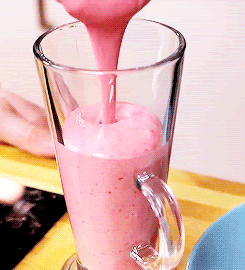
Look at this when you’re alone…
Unsubscribe | Report as spam | Change email preferences
—-Important Message From Samantha—-
My secret confession

Hi, my name is Samantha and you’ll have to excuse me for blushing as I talk about this…
See, I’m kind of a shy, reserved girl and what I’m going to be talking about here…
…well… let’s just say it’s definitely NOT safe for polite company.
It’s actually about a topic that’s REALLY important to us girls… even though we’d never admit it to your face…
———-
Why you should eat more strawberries
Fruits are a great source of health giving compounds.
Aside from sugar, vitamins and minerals, fruits also provide a class of compounds called flavonoids.
These flavonoids give fruits in their vivid colors — but they are also the source of many health benefits.
Researchers have identified a flavonoid found in strawberries which seems to have an entire Alzheimer’s effect.
It’s called pelargonidin.
People who eat more strawberries have a lower risk of developing Alzheimer’s disease.
On top of this, pure pelargonidin improves memory and brain health in animal experiments.

The human research was carried out at the Rush University medical Center in Chicago. The paper was published in the journal Nutrients.
A number of animal studies have identified strawberries as a potential source of anti-Alzheimer’s compounds.
“Strawberries have been identified to have antioxidant and anti-inflammatory properties that improve neuronal function and cognition, mostly in animal studies.”
The authors of this paper were interested in seeing the relationship between strawberry intake and Alzheimer’s risk in humans.
“We want to know if the consumption of strawberries or related bioactive compounds may reduce the risk of Alzheimer’s dementia risk.”
The researchers used information from the Rush Memory and Aging Project.
Over 900 participants between the ages of 58 and 98 years old were included in this study.
At the outset all of the participants were free of any signs of dementia.
“The study was conducted in 925 participants, aged 58-98 years of the Rush Memory and Aging Project. Participants were dementia-free at baseline.”
All of the participants of the study completed food questionnaires which were analyzed for strawberry intake.
The researchers tracked the participants for anywhere between three and 10 years – an average of 6.7 years.
During the study, all of the participants had at least two neurological examinations.
These examinations would have diagnosed Alzheimer’s and other forms of dementia if they had developed.
“Participants completed a food frequency questionnaire, and had at least two annual neurological evaluations.”
The researchers then looked at the risk of developing dementia and its relationship to strawberry consumption.
A little more than 1/4 of the participants developed Alzheimer’s disease.
Higher than average consumption of strawberries was associated with a 25% lower risk of developing Alzheimer’s disease.
“Higher strawberry intake was associated with a reduced risk of Alzheimer’s dementia.”
The researchers also found relationships between Alzheimer’s disease diagnosis and individual nutrients contained in strawberries.
When comparing highest against lowest intake:
Vitamin C was associated with a 36% reduction in Alzheimer’s risk.
Pelargonidin was associated with a 37% reduced risk of developing Alzheimer’s disease.
(Pelargonidin is a flavonoid found in high amounts and strawberries.)
The researchers also found a significant risk reduction relationship with other strawberry flavonoids and Alzheimer’s disease.
The links remained even after the researchers accounted for other risk factors.
“We adjusted for age, sex, education, physical activity, participation in cognitive activities, APOE, intake of other fruits, caloric intake and cardiovascular conditions.”
The data from this research shows that strawberries and a number of its nutrients can significantly lower the risk of developing Alzheimer’s disease.
“Consumption of strawberries and foods rich in vitamin C, pelargonidin, anthocyanins, and total flapping which may reduce the risk of Alzheimer’s dementia.”
Pelargonidin seems to be one of the most interesting compounds found in strawberries which has an anti-Alzheimer’s effect.
The researchers carried out this investigation because previous animal studies had shown pelargonidin could help with Alzheimer’s disease.
“Administration of pelargonidin in an Alzheimer’s disease rodent model demonstrated improvement in memory deficit and reduction in hippocampal oxidative stress.”
Every day researchers are uncovering more and more protective effects of fruits.
One possible problem with the consumption of berries like strawberries is contamination with harmful agricultural chemicals.
It’s worth looking for locally sourced berries with low levels of pesticides and other chemicals.
—-Important Message For Men Who Like Fruit—-
Here’s my fruity blood flow shake that’s nearly doubled my natural blood flow

Thanks to this shake, I’m getting hot, pumping blood flow everywhere in my body…
…especially in my member where it’s plumping up and looking bigger than ever…
My wife even commented on how much thicker I felt inside her — and this was just a week after drinking this shake!
The reason it works is because it contains 5 vital nutrients for great blood flow.
These 5 nutrients open up my arteries and increase blood flow, and it even lowers my pressure naturally.
Here’s my new blood flow shake — try it and let me know how it goes
———-

